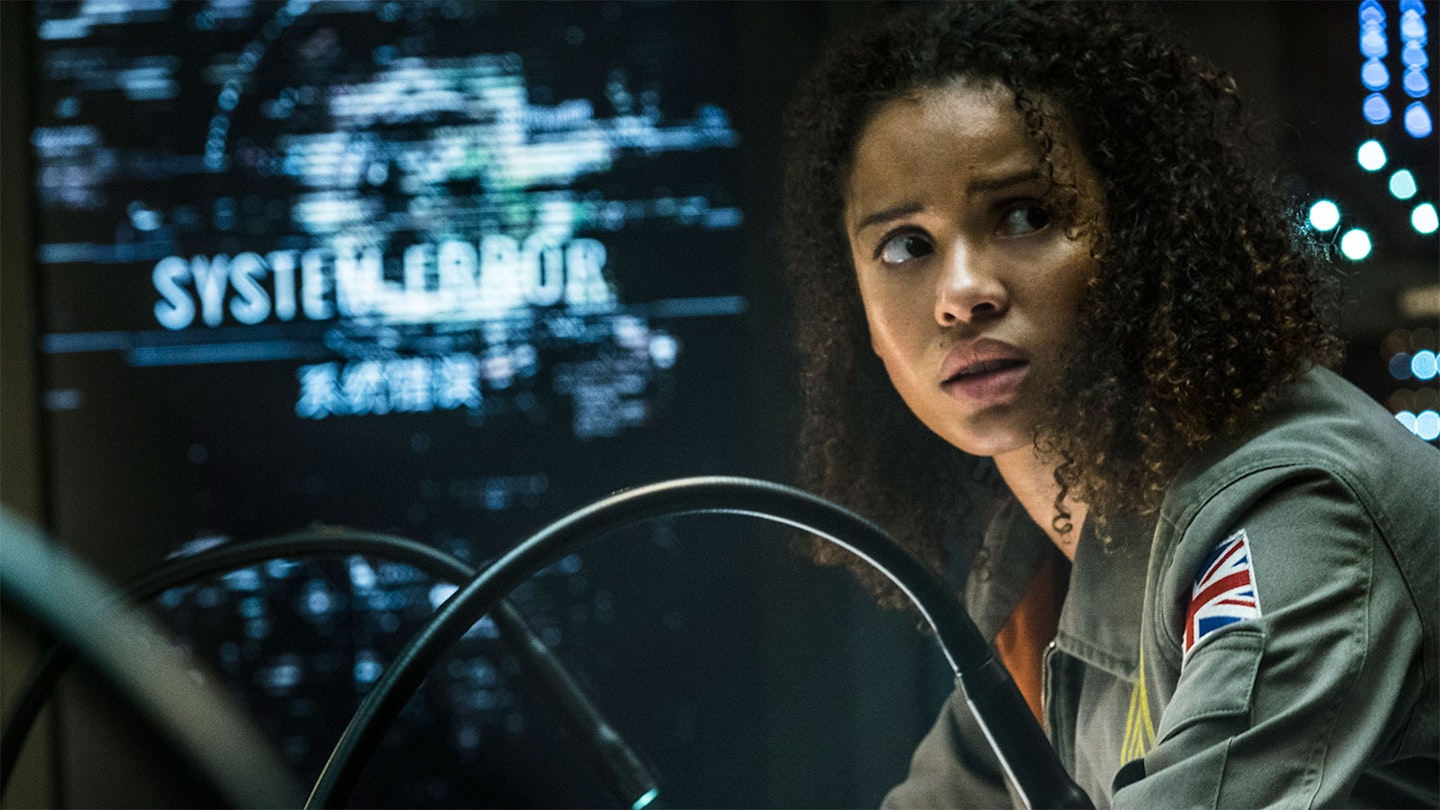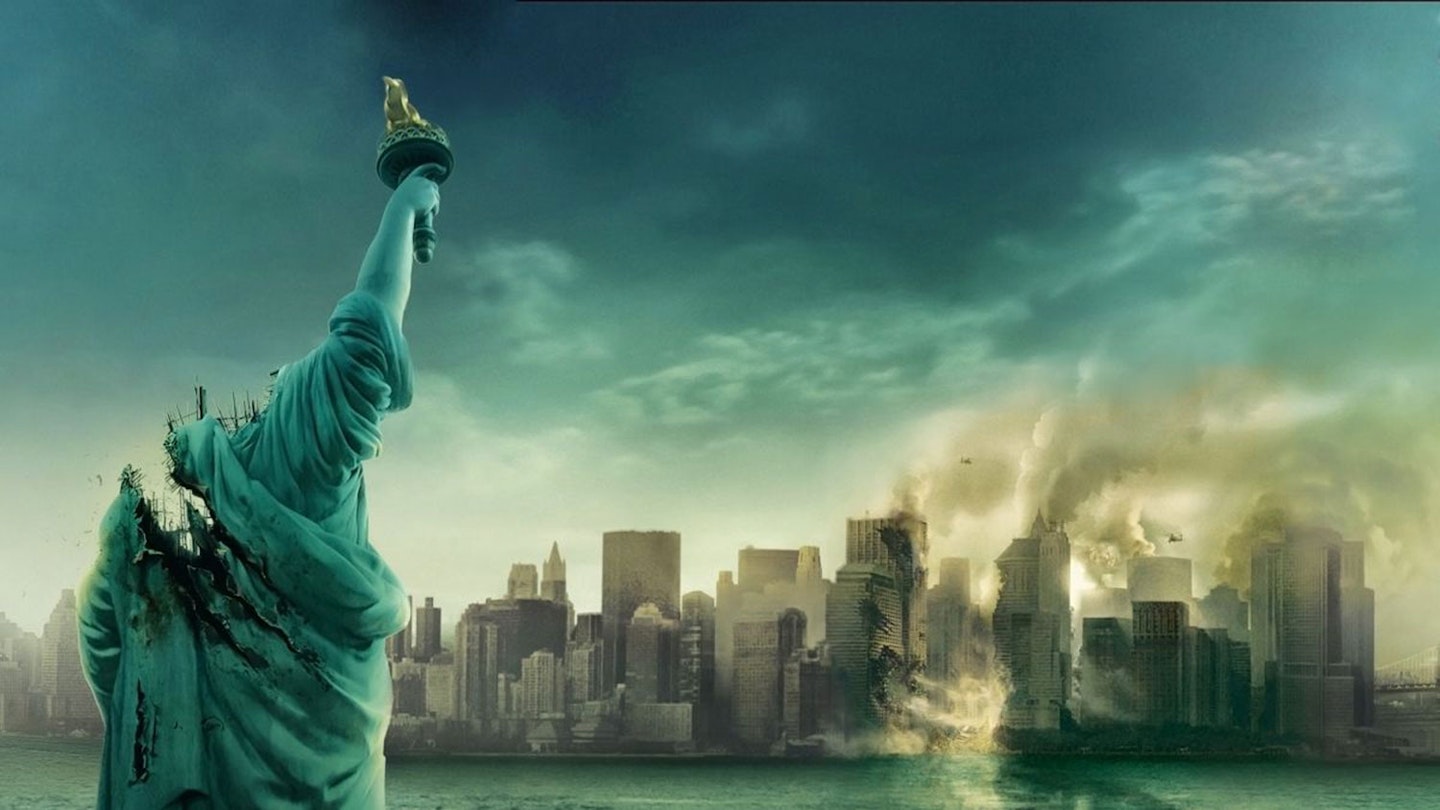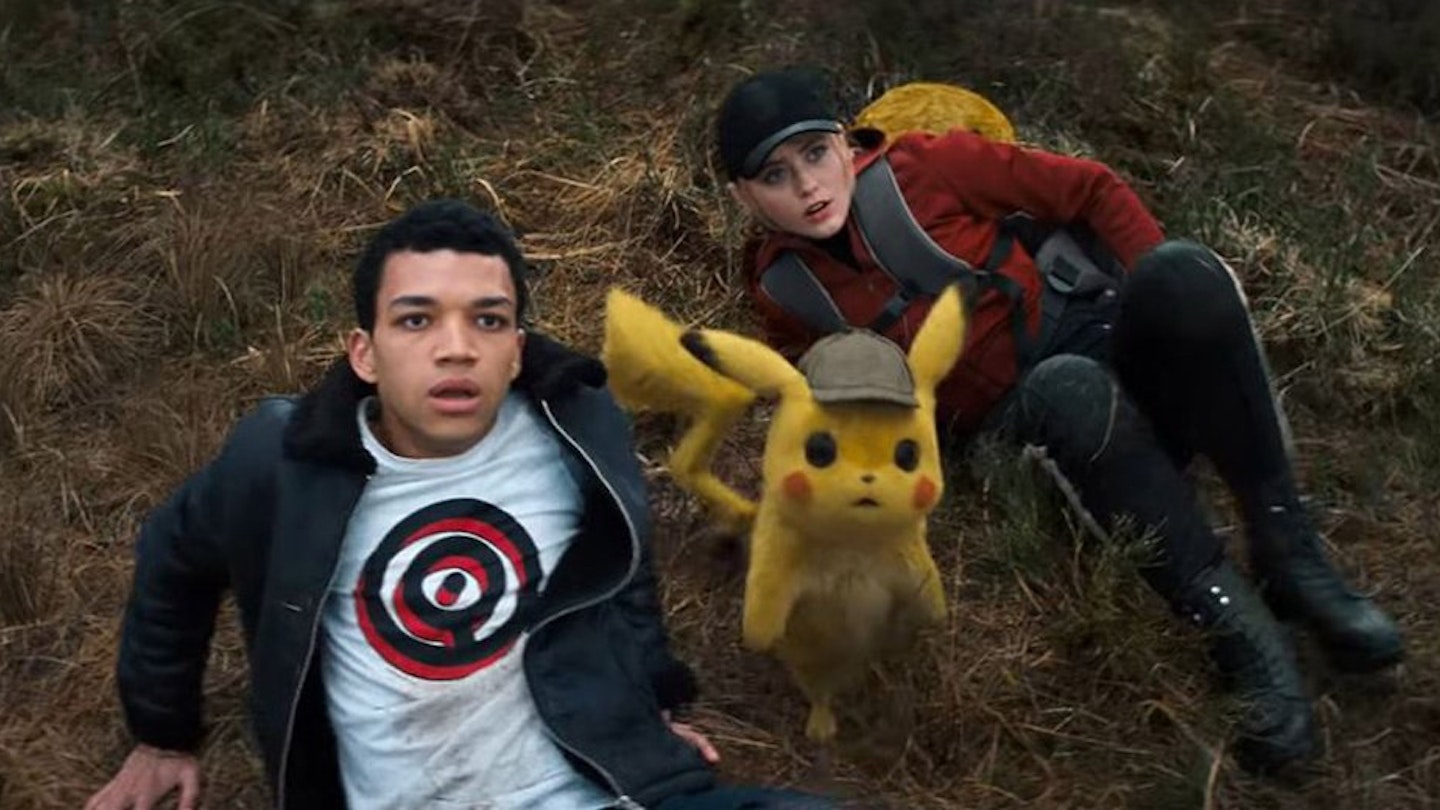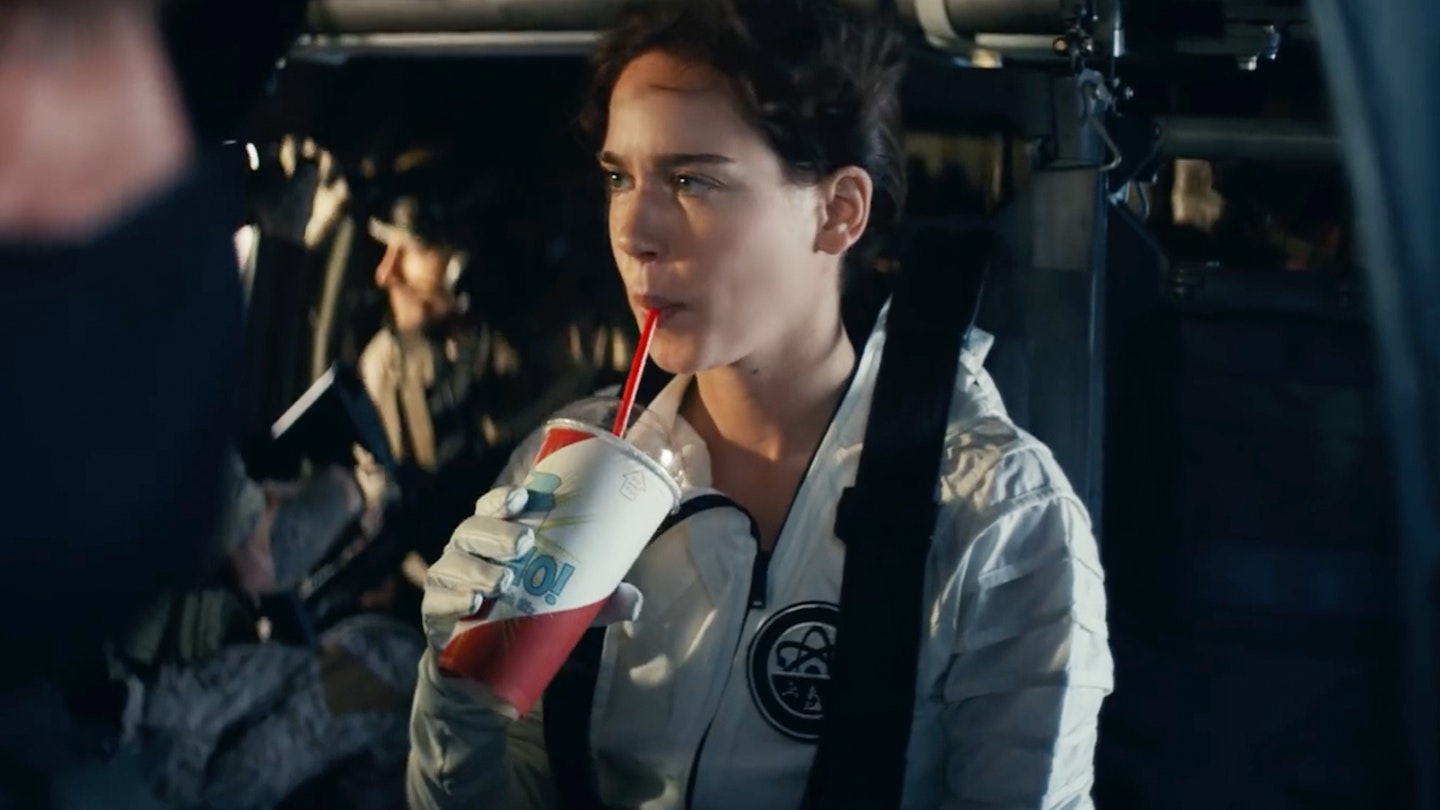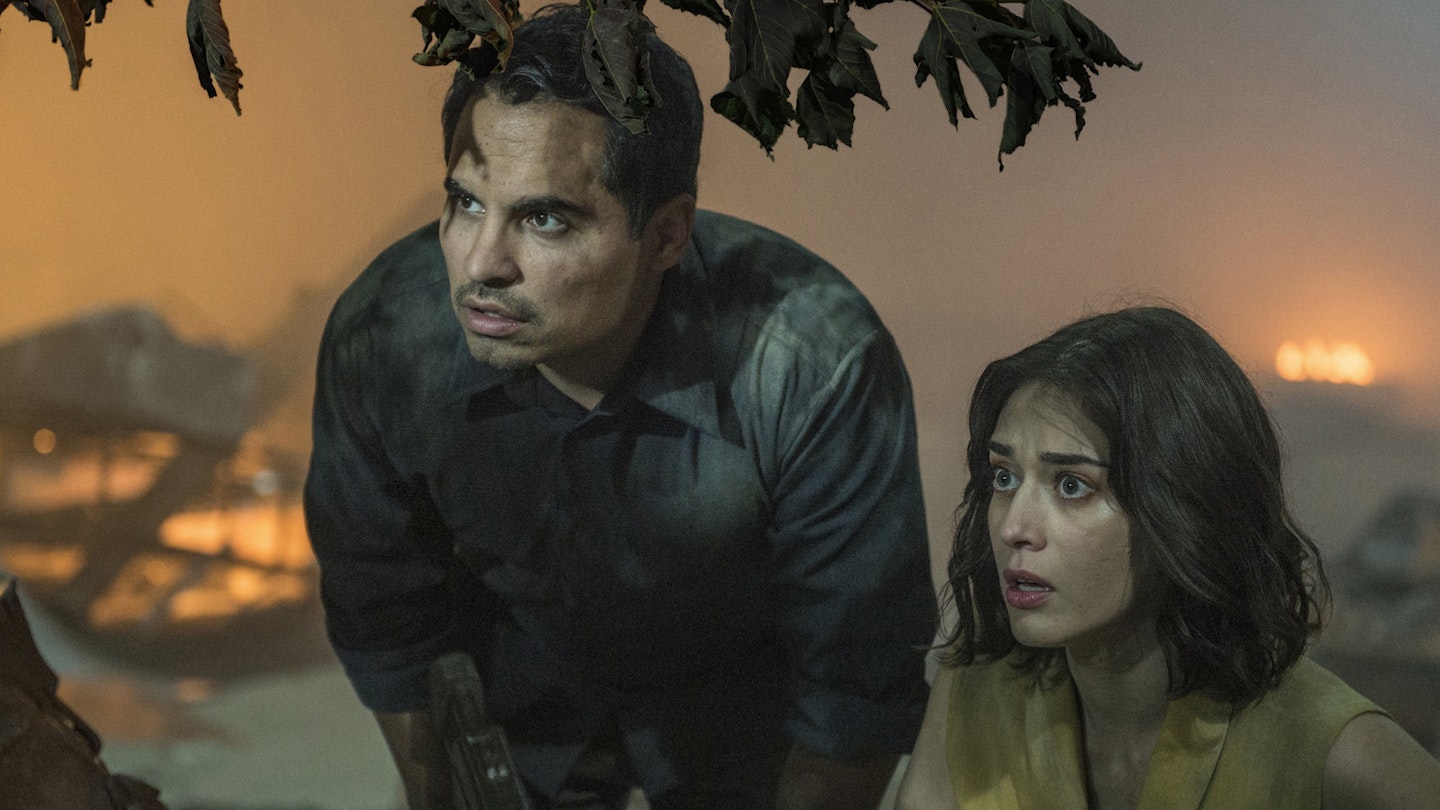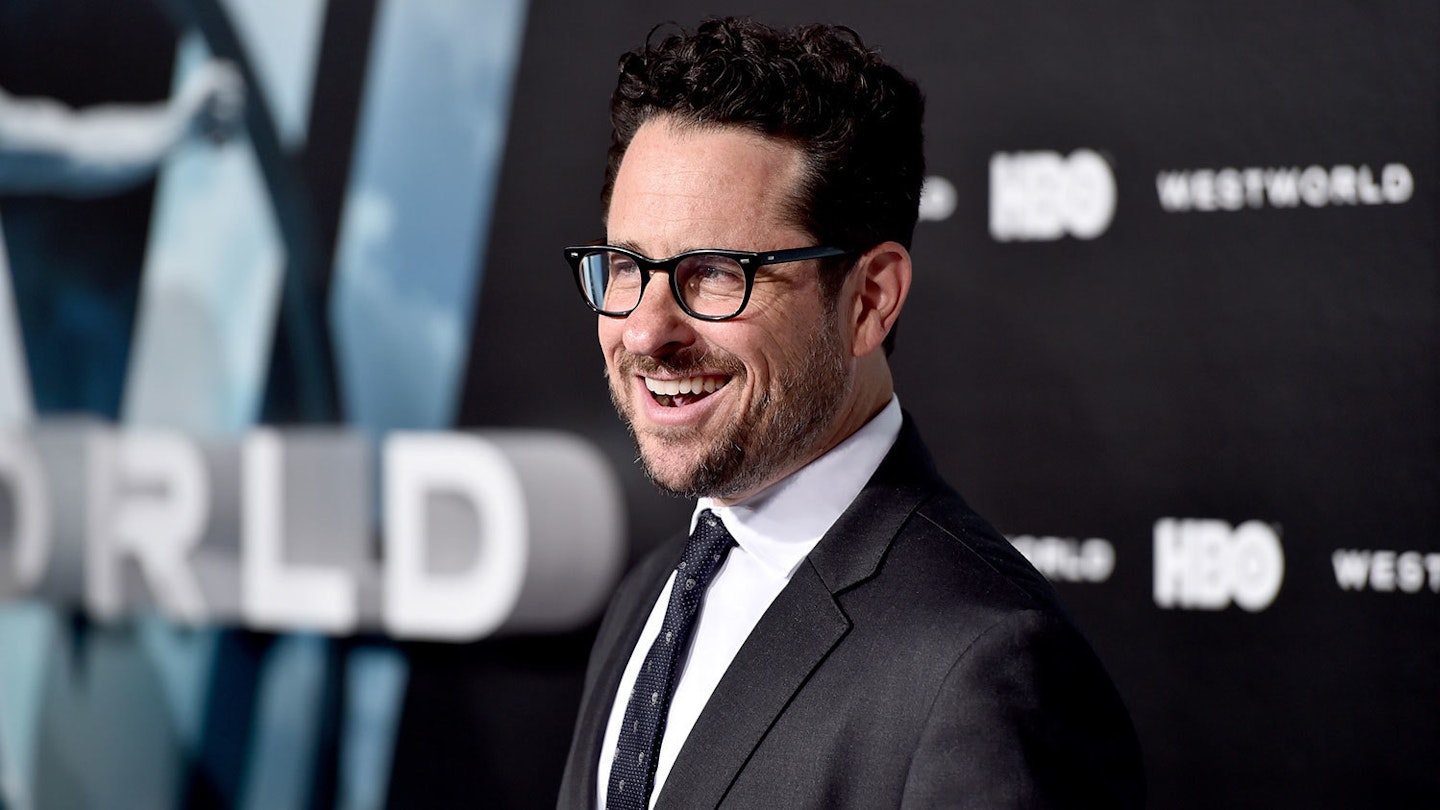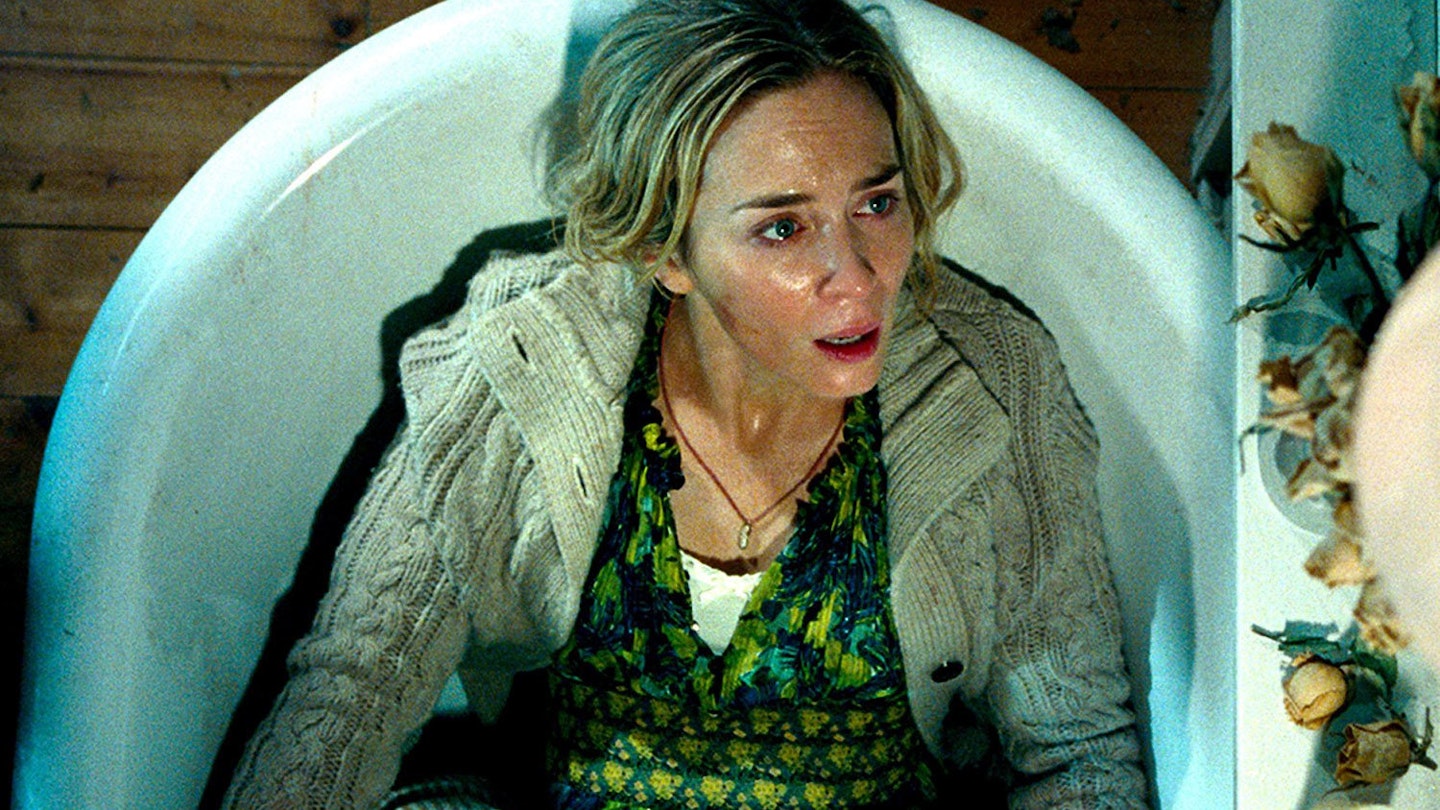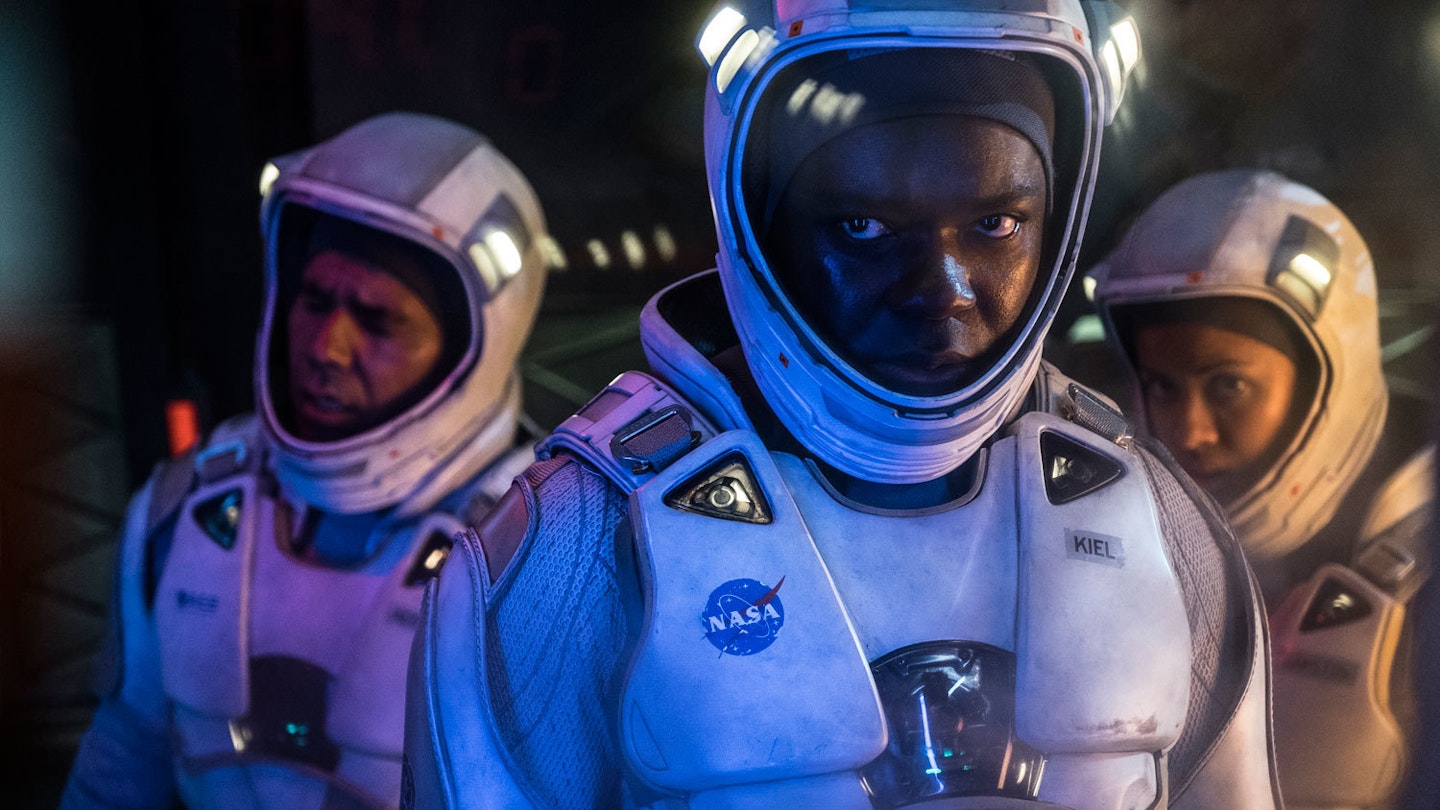One thing’s for certain with Cloverfield films — you know you’re getting some monsters. Or a monster. At some point. Probably. But now, as we hit the third instalment, that’s about all we know, because in terms of tone, worldview and quality control… it’s a crapshoot.
What are these films? There is no linear throughline, not conventionally at least. At best it’s an anthology; at worst, marketing. 2008’s original, directed by Matt Reeves, was a wild ride that provided fun thrills and spills and made found footage cool again. Then came 2016’s follow-up, Dan Trachtenberg’s claustrophobic chamber piece 10 Cloverfield Lane, which – surprise! – blindsided us, a secret sequel we knew nothing about. Except it wasn’t, not really; it just said it was. Originally an unrelated script for an unrelated film, it was bought and then cleverly Cloverfielded, sucked into monsterville via an admittedly heartstopping coda which served up some supernatural anarchy – a tagged-on ending which had us foaming at the mouth for more.
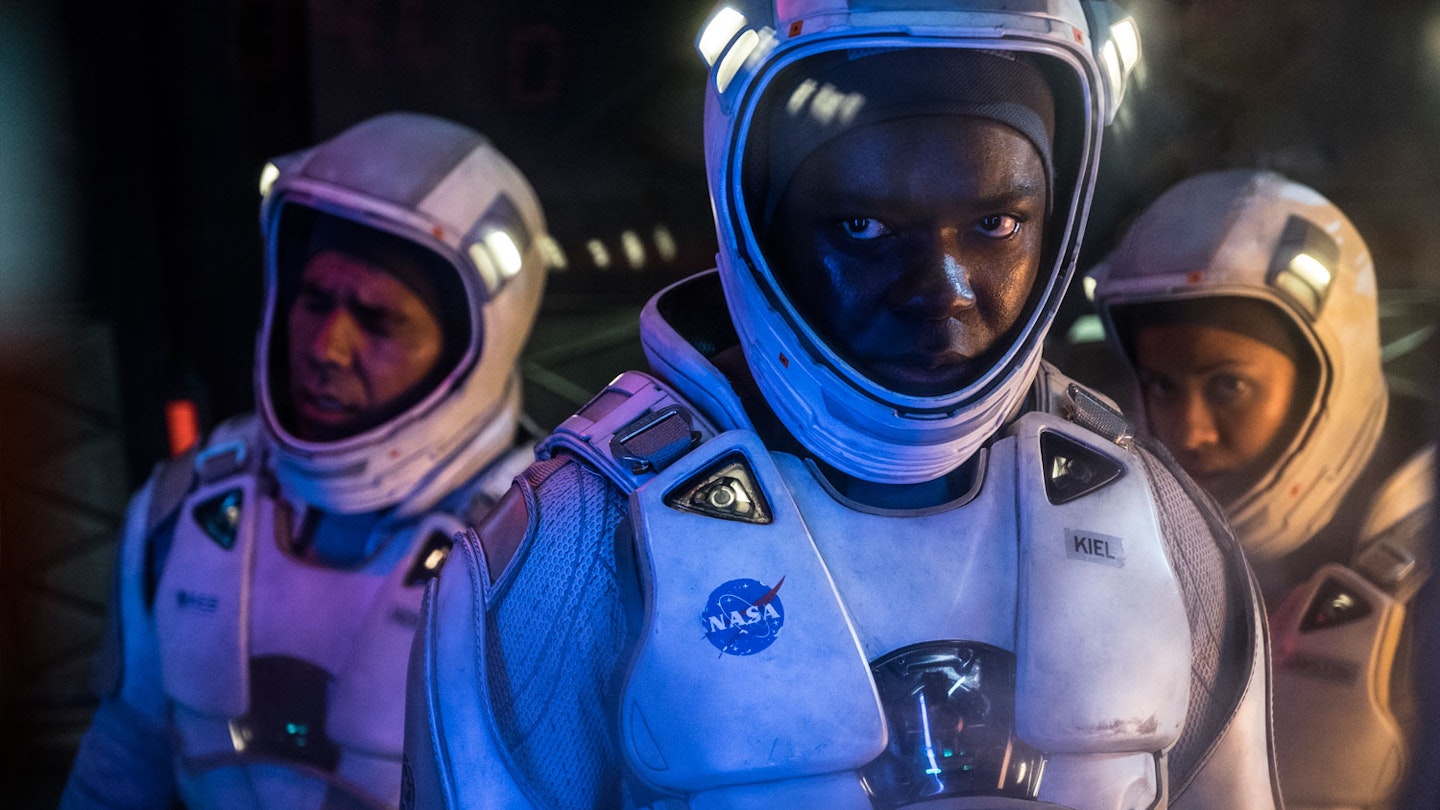
As much, though, as it would have been exhilarating to get a whole movie of Mary Elizabeth Winstead taking on giant spider-bugs, producers J.J. Abrams and Lindsey Weber have done it again, nabbing a script that was written years ago – a screenplay by Oren Uziel (22 Jump Street) originally announced by Abrams’ company Bad Robot in 2012 as God Particle — and more recently having it reconfigured for the Cloververse. The result this time, alas, is an identity crisis.
The second feature from director Julius Onah, it primarily sticks us on a space station. Earth’s energy resources are all but depleted, with rationing in place and regular blackouts on the up, and the station’s crew are tasked with doing something ridiculous with a particle accelerator, in the hope of producing free energy, thus solving the world’s crisis forever. It’s a risky mission which could destroy the crew and, if Donal Logue’s crackpoty author is to be believed, could also rip open “the membrane of space-time, shattering reality”, unleashing monsters, demons and “beasts from the sea”. To which we say: bring it on, asap please, because this film’s already testing our patience.
Despite the enormity of the stakes, you never feel any tangible threat.
With the delayed opening credits, dealt out over the mission’s early months, there is some Hitchcockian promise, a nod, perhaps, to its predecessor, which was a masterclass in suspense and quiet terror. Bear McCreary’s score sounds like Bernard Herrmann, while the graphics looks like the work of Saul Bass, and it’s enticing. From then on, though, in stark contrast to 10 Cloverfield Lane, there’s a disappointing superficiality to The Cloverfield Paradox, which does many things we’ve seen before in such genre work, mostly haphazardly, and never uniquely — Alien, The Thing, Event Horizon and The Mist are all half-heartedly chucked into a stew. The eclectic cast go for it — Gugu Mbatha-Raw giving it heart, Chris O’Dowd chucking around quips, Daniel Brühl taking no prisoners, Elizabeth Debicki providing moral ambiguity – but their characters are walking in other characters’ shoes, treading familiar ground and spouting half-baked dialogue. It’s trope city, space thriller Top Trumps, with generic design, little class, and jump scares when you most expect them. Forget about any sort of grounded reality – the environment is about as convincing as The Muppets’ Pigs In Space, with less charm.
It has its moments – what you basically get is a galactic funhouse, as the ship becomes possessed, possibly, and bad things start happening, with some set-piece invention. Yet despite the enormity of the stakes, you never feel any tangible threat. There is little depth, much unconvincing running, one-line stinkers you can smell coming, and some provocative moral quandaries that might have made for a better film if they weren’t as glossed over. The actors deserved better; the monsters deserved better.
It’s a shame, as, on the heels of the first two films, and especially 10 Cloverfield Lane, this seemed like a refreshing franchise on the make. With this, though, it seems like franchise for franchise sake, a cynical move that renders that brand promise redundant. On the basis of this one, the Police Academy series had more integrity (and narrative sense). It’s hard to know if the Cloverfield banner is a blessing or a curse for the former God Particle, which, under this umbrella, is getting both a lot more attention and considerably more scrutiny because of it. Whatever you call it, it’s underwhelming.
M&M’s, though, will be happy, for possibly the most egregious bit of what we assume is product placement ever seen. The chocolate monster is the real winner here.
